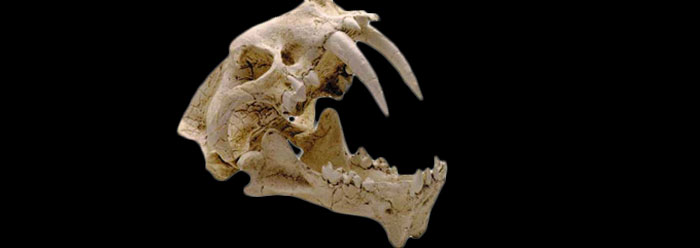Charles Darwin was a good naturalist (biologist) who did work in a variety of areas such as plant hormones and barnacles. But when it came to fossils (physical evidence) documenting macroevolution, he knew they argued against his idea. In fact, one chapter in his 1859 book is entitled, "On the Imperfection of the Geologic Record."
What Darwin did was profoundly unscientific. He decided to ignore the physical evidence (the fossil record) and hold tightly to his unproved, unobserved theory of descent with modification: macroevolution. Scientists don't normally do this, but Darwin felt that through time research would vindicate this strange position. In fact, just the opposite has occurred.1 The missing links are still missing.
Things haven't changed that much in secular science. The philosophy of Darwinism has prevented many from viewing clear physical evidence and making an unbiased determination based on that evidence. This was graphically displayed recently when "70-million-year-old" soft dinosaur tissue was unearthed in eastern Montana. Indeed, National Geographic News admitted many dinosaur fossils could have soft tissue inside.2 It is obvious that organic tissue cannot maintain such pristine condition through enormous time spans. The only alternative is that the tissue and surrounding fossilized material is quite young -- which is anathema to the secular scientist who insists on an old earth. The philosophical convictions of these scientists will not allow them to go where the physical evidence leads:
I believe a philosophical framework is not something that can be eliminated in order to provide "objectivity." In my view, "objectivity" does not exist in science. Even in the act of gathering data, decisions about what data to record and what to ignore reflect the philosophical framework of the scientist.3
Discover magazine ran an article regarding Dr. Mary Schweitzer's phenomenal soft dinosaur tissue discovery. She stated,
I had one reviewer tell me he didn't care what the data said, he knew that what I was finding wasn't possible. I wrote back and said, "Well, what data would convince you?" And he said, "None."4
How would the secular community respond if a creation scientist said such a thing? Scientists of all stripes should go where the evidence leads.
As the result of the impact of what T. H. Huxley once called "one ugly little fact," the truly scientific investigator will make whatever changes are demanded by the situation, even if he is compelled to begin his research de novo to all intents and purposes.5
References
- Swift, D. 2002. Evolution under the microscope. Stirling, Scotland: Leighton Academic Press.
- Norris, S. 2006. Many dino fossils could have soft tissue inside. National Geographic News. February 22.
- Wolpoff, M. 1999. Paleoanthropology. 2nd ed., Boston, MA: McGraw-Hill, lv.
- Yeoman, B. 2006. Schweitzer's dangerous discovery. Discover, April: 37.
- Harrison, R. K. Introduction to the Old Testament. Peabody, MA: Hendrickson Publishers, 508. (As cited from Josh McDowell's book, The New Evidence that Demands a Verdict. San Bernardino, CA: Here's Life Publishers, 1999: 409.)
*Frank Sherwin is a zoologist and seminar speaker for ICR.
Cite this article: Sherwin, F. 2007. Follow the Evidence! Acts & Facts. 36 (4).




